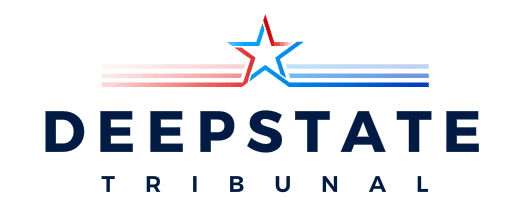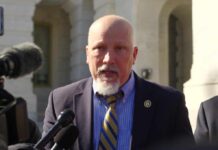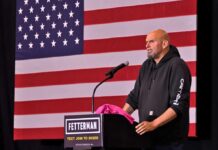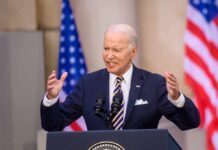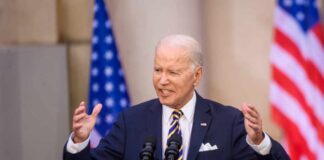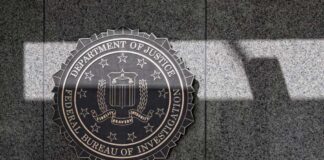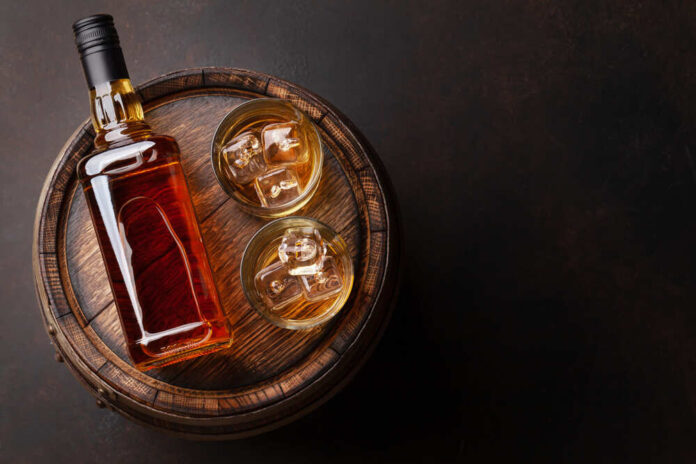
Several top officials in Oregon in charge of regulating alcohol have been found to have abused their power to get their hands on some rare, extremely expensive bourbon.
An internal investigation found that at least six members of the Oregon Liquor and Cannabis Commission (OLCC) had used their power to divert rare and expensive bourbon whiskey so they could purchase it for their own use.
The officials, including the former executive director of the OLCC, have been accused of using their connections to push the rare bourbon to a specific store where it could be kept away from the public.
In a letter to the OLCC, Oregon Gov. Tina Kotek (D) condemned the officials’ actions.
“After requesting the head of the Oregon Liquor and Cannabis Commission’s resignation, my administration became aware that leaders within this agency, including the director himself, abused their position for personal gain per their own admission in an internal investigation,” the letter read. “This behavior is wholly unacceptable. I will not tolerate wrongful violations of our government ethics laws. I urge the commission to install new leadership and remove the managers and executive leadership who have taken advantage of their access and authority to benefit themselves.”
The investigation revealed that OLCC Executive Director Steve Marks, along with at least five other officials, used their knowledge and connections at OLCC to get their hands on the rare bourbon.
According to local news outlet Willamette Week, when manufacturers set rare bottles of their products aside for customers, the commission has the power to determine where they are sent. Some of these rare products are distributed to retail stores, bars, and restaurants, while others are given away via a lottery.
Odds the general public could win a fancy bottle of coveted Pappy's 23-year-old reserve in an @OLCC lottery?
1 in 5,373, or 0.02%.
Odds you could score the same bottle if you ran the state agency regulating liquor?
100%.
Read @noellecrombie's story: https://t.co/Lezeu84YL2 pic.twitter.com/6jBzJjKwdw
— Brad Schmidt (@_Brad_Schmidt) February 9, 2023
Oregon Public Broadcasting reported that Marks had admitted to an investigator that he had requested for OLCC staff to divert some of the rare bourbons to a particular store so he could then purchase them before the public could get their hands on them, while other bottles were set aside by OLCC so managers could purchase them.
Despite the fact that these officials did pay for the liquor, using their connections to obtain them is a violation of Oregon laws that bar officials from using confidential information for personal gain.
Marks has denied that his actions broke the law, though he did acknowledge he had received preferential treatment “to some extent” due to his position as executive director.
“I don’t know, a few times for my personal use. Pappy’s 23 is remembered in the last few years,” he reportedly told investigators, referencing Pappy Van Winkle’s Family Reserve 23 Year, an extremely rare and expensive bourbon.
According to a Google search, Pappy’s 23 costs $5,000 or more per bottle. A single bottle from the 2008 release reportedly sold for $52,000 at an auction in December.
During the investigation, several officials admitted that the issue of setting aside rare bottles of liquor had been going on for years and was widespread.
Oregon Public Broadcasting also reported that OLCC Director of Distilled Spirits Chris Mayton admitted to serving as a “facilitator” for customers, employees and even state lawmakers on hundreds of occasions — claiming that he saw it as part of his work duties.
One employee responsible for distributing the liquor, Nikki Leslie, revealed that the practice had been going on since she took her job roughly eight years ago — telling investigators that she was often asked to direct the liquor to a particular store near the OLCC headquarters in the city of Milwaukie. She was also asked to alert employees when the products would arrive so that they could purchase bottles ahead of the public.
“This incident underlines the importance of having public accountability,” agency spokesman Mark Pettinger told the Associated Press. “The OLCC will need to work on rebuilding and restoring our public trust … and adhere to Oregon’s ethics laws.”
